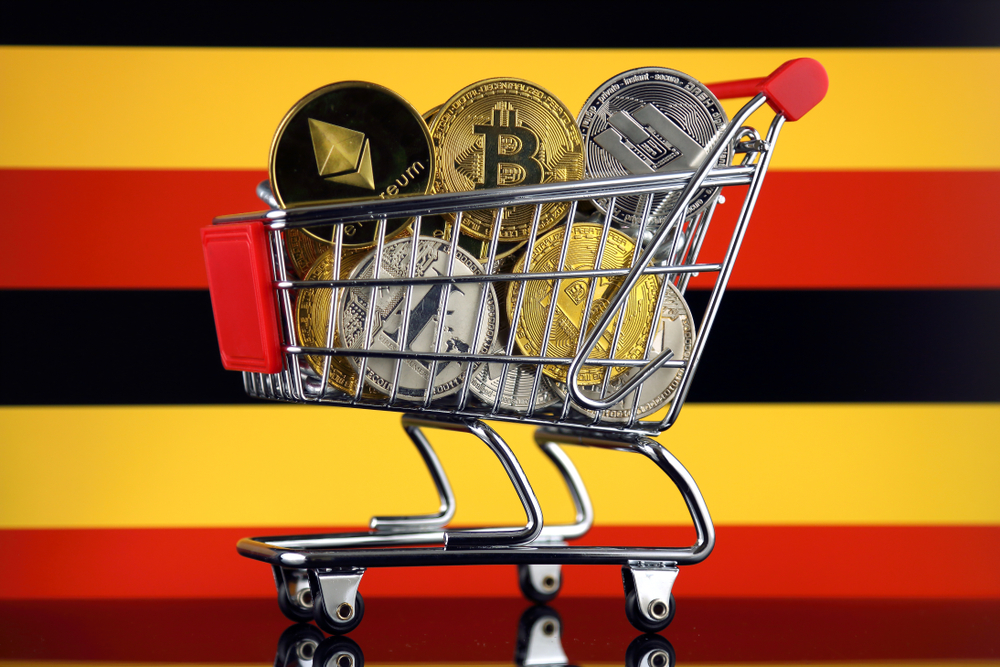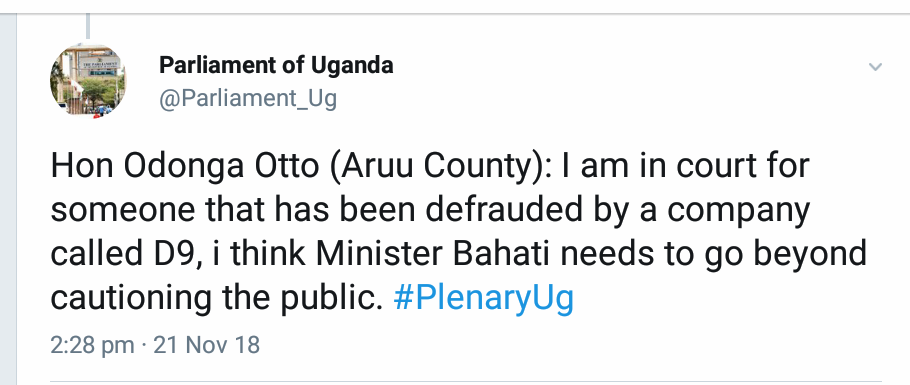
Uganda will seek to regulate crypto assets to prevent criminals from exploiting digital currencies to scam citizens. This comes as thousands of Ugandans have fallen victim to a number of Ponzi schemes, including the D9 Club, which promised to pay members in bitcoin. Minister of State for Finance (Planning) David Bahati said the government has now finalized a bill on national payments, which will be tabled in parliament for approval in December.
Also read: Venezuela Approves Law Granting Legal Effect to the Petro
Legislators Call for Regulation
“In October, Cabinet approved the National Payment System Bill. We intend to bring it to parliament next month so that it caters for all these forms of digital financial transactions,” Bahati told the Ugandan parliament on Nov. 21. He was responding to concerns by lawmakers over the lack of regulation in the eastern African country’s growing cryptocurrency industry, which has spawned several counterfeit bitcoin schemes.

Bahati did not provide specific details about how the proposed law will be applied. Earlier, Mathias Mpuuga, a member of parliament (MP), took the finance minister to task, demanding an explanation about the existence of unregulated cryptocurrency dealers, such as one Telex Free, a pyramid scheme accused of allegedly fleecing Ugandans out of hundreds of thousands of dollars. He alleges that the scheme defrauded some Ugandan legislators as well.
“There are several agencies posing as cryptocurrency dealers such as ripcoin, namecoin and bitcoin. The challenge is that while this is taking place, there is no legal framework for supervising these players,” Kampala-based daily The Independent quoted Mpuuga as saying.
He exhorted the government to see unregulated virtual currency brokers as “a potential bomb” that warrants state intervention to help protect individual investors.
Mpuuga demanded:
If there is no law but you are aware there are agencies operating in the country, who must answer should a problem arise? Can government at least tell the country (who) the cryptocurrency dealers operating (are).
Pyramid Schemes Rising

In Uganda, the adoption of cryptocurrencies and blockchain technology continues to grow. In October, Binance — the world’s biggest digital asset exchange — opened its first fiat-to-crypto trading platform in the country, reportedly amassing 40,000 sign-ups during its first week of operation.
That’s despite warnings by the Bank of Uganda against the use of unregulated digital currencies such as bitcoin. The country of 44 million people hosts blockchain conferences and is home to a number of associations, ostensibly with support at Cabinet level.
But Bahati said the government has not “officially approved” cryptocurrencies. He told parliament:
The central bank issued a statement that bitcoin and all related currencies are not under their control. We are cautioning the public to be aware that government has not officially approved such currencies. Government will next month present a bill to this effect.
His statement will be of little comfort to those who have lost money in shady bitcoin schemes such as the D9 Club. The Ponzi scheme, now collapsed, posed as a sports trading company, promising members hefty weekly payouts in bitcoin on initial investment of between $250 and $2,000.

For many Ugandans, joining cost an arm and a leg, as MP and lawyer Odonga Otto knows all too well. “I am currently privy to a case in court of one of the pyramid schemes called D9 that has defrauded many Ugandans, including some MPs, yet there is no legal regime in which people can claim their money,” Otto said.
It is unclear how much money Ugandans have lost in the scheme.
What do you think about the plan to regulate cryptocurrencies in Uganda? Let us know in the comments section below.
Images courtesy of Shutterstock.
Express yourself freely at Bitcoin.com’s user forums. We don’t censor on political grounds. Checkforum.Bitcoin.com.
The post Uganda to Regulate Cryptocurrency as Fake Bitcoin Schemes Surge appeared first on Bitcoin News.
Powered by WPeMatico
